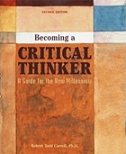Kindle 2: Amazon's New Wireless Reading Device (Latest Generation)
From Abracadabra to Zombies
Skeptimedia
Warning: Fruits & Vegetables May be Killing Your Children
 17
May 2010. Scary headlines is
our topic today.
17
May 2010. Scary headlines is
our topic today.
Are you ready for a quiz?
Here's your first (and last) question: What's the difference between the following two statements?
1. "Children exposed to higher levels of a type of pesticide found in trace amounts on commercially grown fruit and vegetables are more likely to have attention deficit hyperactivity disorder than children with less exposure, a nationwide study suggests."
2. "These findings support the hypothesis that organophosphate exposure, at levels common among US children, may contribute to ADHD prevalence. Prospective studies are needed to establish whether this association is causal."
If you said that the first one is from a news source and the second one is from a scientific journal, pat yourself on the back. The first statement is from a CNN.com article with the headline "Study: ADHD linked to pesticide exposure." Linked is not the same as causally linked, of course, but that is how many people will read it. ADHD and some chemicals found in trace amounts on commercially grown fruit and vegetables have been statistically linked. Yet, CNN wouldn't be hyping the study just to tell us that a study has found that more studies might find a causal connection between pesticides and ADHD. They're hyping the study as a teaser to a CNN television special called "Toxic America" that will be shown next month. Don't be surprised if the television special (featuring Dr. Sanjay Gupta) also announces some "associations" and finds some "links" between certain chemicals and what might be ailing you. The careful viewer will be looking for evidence that the associations and links are more than just statistical, and that any advice given on what a person should do for his or her well being is based on solid evidence.
The second statement in our quiz is from the abstract of the article in Pediatrics that CNN used as the basis for its teaser. As you can tell from the words of the researchers, they do not claim they have found a causal link. Note especially the weasel word 'may,' which does not mean 'does.' They explicitly say that more studies must be done to establish whether there is a causal connection between ADHD and pesticides.
Maryse Bouchard, Ph.D., who was part of the team of researchers who published the article in Pediatrics, is cited by CNN as saying that organophosphates are "designed" to have toxic effects on the nervous system. "That's how they kill pests." She doesn't say that all fruits and vegetable produce natural toxins that kill pests. That's how they've evolved.
Bouchard notes that pesticides act on a set of brain chemicals closely related to those involved in ADHD, "so it seems plausible that exposure to organophosphates could be associated with ADHD-like symptoms." That seems reasonable if it's true that pesticides act on a set of chemicals closely related to those involved in ADHD. Anyway, Bouchard goes on to say that although kids should not stop eating fruits and vegetables, buying organic or local produce whenever possible is a good idea. On what grounds? Studies have shown, she says, that organic produce and produce from local farmers markets have less pesticide than store-bought commercial produce. So what? She hasn't established that there is a causal connection between pesticides and ADHD, so she obviously has not established a dose of pesticide that is harmful. Having less pesticide doesn't mean its safe, nor does it mean it's safer. If it is ever established that organophosphates are a significant causal factor in developing ADHD, it might also be found that washing the produce is sufficient to reduce the risk to zero or near zero. At this point, Bouchard's claims go way beyond the science she's done.
The CNN article does not provide good evidence that commercially grown foods are harming children, nor does it provide good evidence for suggesting that parents buy organic or local produce whenever possible. No evidence was provided that would indicate that organic or locally grown foods have a lower association with ADHD than commercially grown foods.
Bouchard is obviously convinced of the risk of pesticides causing ADHD. She knows her study can't claim to have established a causal connection, yet she suspects long-term studies including multiple urine samples from the children would show an even stronger link between pesticide byproducts and ADHD. Maybe they will, but she's premature in saying: "I would hope that this study raises awareness as to the risk associated with pesticide exposure." No real risk has been established. That doesn't mean there is none, but she should wait until the data show what her intuition tells her before she issues warnings.
In the meantime,
organic has not
been proven safer or better than commercial. Eat your fruits
and veggies, but wash them first. And remember that each of us
is carrying hundreds of environmental toxins in our bodies. That
fact doesn't mean we are being poisoned. The quantities in most
cases are so small as
 to be of little concern.
Bruce Ames, a world-renowned cancer researcher, reminds us
that "there are 10 milligrams of known carcinogens in a cup of
coffee and that's more carcinogens than you're likely to get
from pesticide residues for a year!" In case you're wondering,
there are a thousand chemicals in a cup of coffee, but
only 22 have been tested in animal cancer tests. Of those, 17
are carcinogens. Should you worry? Not according to professor
Ames. Why? Because the dose of those chemicals in a cup of
coffee is too small to worry about. Ames is the inventor of the
Ames Test, which allows scientists to test chemicals to see if
they cause mutations in bacteria. His research led to bans on
such synthetic chemicals as Tris, the flame-retardant used in
children's pajamas.
to be of little concern.
Bruce Ames, a world-renowned cancer researcher, reminds us
that "there are 10 milligrams of known carcinogens in a cup of
coffee and that's more carcinogens than you're likely to get
from pesticide residues for a year!" In case you're wondering,
there are a thousand chemicals in a cup of coffee, but
only 22 have been tested in animal cancer tests. Of those, 17
are carcinogens. Should you worry? Not according to professor
Ames. Why? Because the dose of those chemicals in a cup of
coffee is too small to worry about. Ames is the inventor of the
Ames Test, which allows scientists to test chemicals to see if
they cause mutations in bacteria. His research led to bans on
such synthetic chemicals as Tris, the flame-retardant used in
children's pajamas.
And don't forget that we're all living longer despite all these insults to our bodily systems. Remember the first rule of pharmacology: the dose is what matters. There may be many people trying to scare you into believing that you are being poisoned just by living in this modern world, but you really don't need to detox. Really. Go ahead, eat that peach. And use your cell phone to call others and spread the good news. Really, neither the peach nor the cell phone are likely to cause brain damage or cancer, despite what the headlines say.
* AmeriCares *


